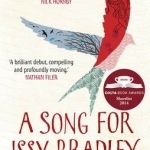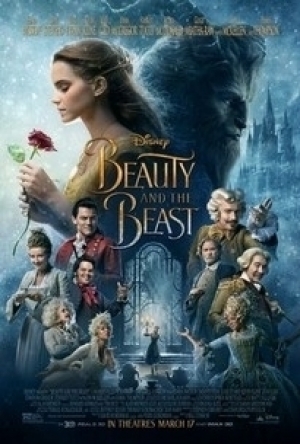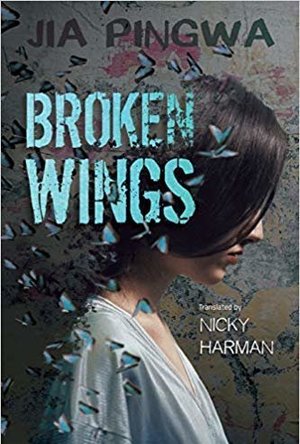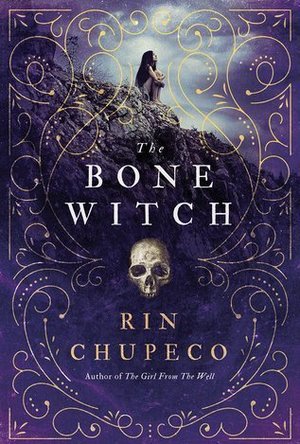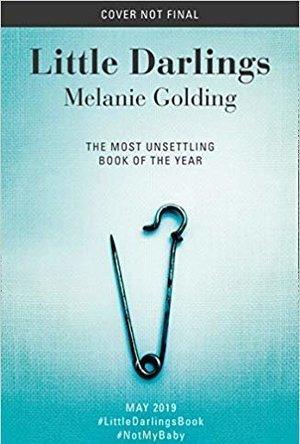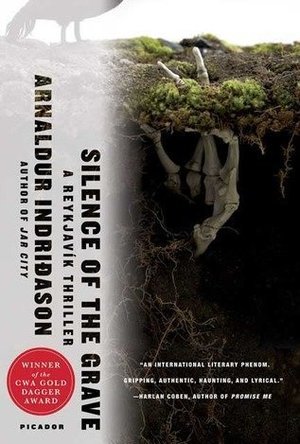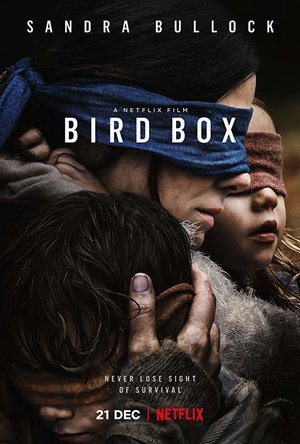Search
Search results
Hazel (1853 KP) rated A Song for Issy Bradley in Books
May 30, 2017
Heart Wrenching
I received this book for free through Goodreads First Reads.
A Song for Issy Bradley is the captivating debut novel of talented author Carys Bray. Set in modern day Britain this heart-breaking story shows a family’s struggle to overcome the loss of their youngest child whilst also adhering to the strict rules of their Mormon religion.
It begins with seven-year-old Jacob’s birthday and Mum, Claire, is rushing around with last minute party preparations, whilst her husband, Bishop Ian, is off attending to his religious duties. Although Claire is aware that Issy is feeling poorly she does not realize how serious it is until much later - too much later. After being rushed to hospital with meningitis Issy’s prognosis is not good. Despite Ian’s blessings and prayers no miracle occurs and Issy passes away the following day.
The main storyline is about how the characters cope with this shockingly sudden loss. Claire hides herself away from everyone by remaining in bed for weeks and ignoring her duties and her family’s pleas. Ian, worried that Claire is not grieving in the proper Mormon way, throws himself even deeper into religion by focusing on what is expected of him as a Bishop rather than concentrating on his children’s needs.
Zipporah, the eldest, is expected to become the woman of the house until Claire returns to “normal”. As well as studying for her exams and doing the housework, Ian insists she attend all church events for people her age. Alone she worries about love, marriage and falling into sin; she would really like to be able to talk to her Mum. Alma, on the other hand, is becoming more and more rebellious. Not only does he have a stupid name (Alma was named after a prophet in the book of Mormon) his ambition to become a professional footballer is not conducive to living the gospel. Although he makes jokes and rude remarks about religious ideas there is still a part of him that believes, and despite his attitude it is clear he is deeply affected by Issy’s death.
Jacob’s reaction is the most heart wrenching of all. Being so young he believes everything he is told especially the bible stories he hears at church. If Jesus can bring people back to life, perhaps Issy can live again? He puts his faith in God and waits in vain for his sister’s miraculous return.
The story is shown through each of these five character’s point of views, which is interesting as the reader gets a chance to see how each person’s actions affect the others and gives a greater insight into character developments. It is gratifying to witness, albeit slowly, the family pick themselves up and begin to work together and carry on.
As to be expected with a story about Mormons there is a large amount of bible quotation. Many are from the Book of Mormon but there are numerous biblical references that Christians of all denominations will appreciate. The author was raised as a Mormon so it can only be assumed that all the details are accurate. Non-believers, however, should not be put off from reading this beautiful book: it is the way in which people deal with loss that is important and there is no preaching at the reader or attempts to convert.
This novel is highly recommended for female and male readers alike, particularly those who enjoy emotionally charged stories; and, of course, those interested in religion will love this book too.
A Song for Issy Bradley is the captivating debut novel of talented author Carys Bray. Set in modern day Britain this heart-breaking story shows a family’s struggle to overcome the loss of their youngest child whilst also adhering to the strict rules of their Mormon religion.
It begins with seven-year-old Jacob’s birthday and Mum, Claire, is rushing around with last minute party preparations, whilst her husband, Bishop Ian, is off attending to his religious duties. Although Claire is aware that Issy is feeling poorly she does not realize how serious it is until much later - too much later. After being rushed to hospital with meningitis Issy’s prognosis is not good. Despite Ian’s blessings and prayers no miracle occurs and Issy passes away the following day.
The main storyline is about how the characters cope with this shockingly sudden loss. Claire hides herself away from everyone by remaining in bed for weeks and ignoring her duties and her family’s pleas. Ian, worried that Claire is not grieving in the proper Mormon way, throws himself even deeper into religion by focusing on what is expected of him as a Bishop rather than concentrating on his children’s needs.
Zipporah, the eldest, is expected to become the woman of the house until Claire returns to “normal”. As well as studying for her exams and doing the housework, Ian insists she attend all church events for people her age. Alone she worries about love, marriage and falling into sin; she would really like to be able to talk to her Mum. Alma, on the other hand, is becoming more and more rebellious. Not only does he have a stupid name (Alma was named after a prophet in the book of Mormon) his ambition to become a professional footballer is not conducive to living the gospel. Although he makes jokes and rude remarks about religious ideas there is still a part of him that believes, and despite his attitude it is clear he is deeply affected by Issy’s death.
Jacob’s reaction is the most heart wrenching of all. Being so young he believes everything he is told especially the bible stories he hears at church. If Jesus can bring people back to life, perhaps Issy can live again? He puts his faith in God and waits in vain for his sister’s miraculous return.
The story is shown through each of these five character’s point of views, which is interesting as the reader gets a chance to see how each person’s actions affect the others and gives a greater insight into character developments. It is gratifying to witness, albeit slowly, the family pick themselves up and begin to work together and carry on.
As to be expected with a story about Mormons there is a large amount of bible quotation. Many are from the Book of Mormon but there are numerous biblical references that Christians of all denominations will appreciate. The author was raised as a Mormon so it can only be assumed that all the details are accurate. Non-believers, however, should not be put off from reading this beautiful book: it is the way in which people deal with loss that is important and there is no preaching at the reader or attempts to convert.
This novel is highly recommended for female and male readers alike, particularly those who enjoy emotionally charged stories; and, of course, those interested in religion will love this book too.
Hazel (1853 KP) rated A Song for Issy Bradley in Books
Dec 7, 2018
<i>I received this book for free through Goodreads First Reads.</i>
<i>A Song for Issy Bradley</i> is the captivating debut novel of talented author Carys Bray. Set in modern day Britain this heart-breaking story shows a family’s struggle to overcome the loss of their youngest child whilst also adhering to the strict rules of their Mormon religion.
It begins with seven-year-old Jacob’s birthday and Mum, Claire, is rushing around with last minute party preparations, whilst her husband, Bishop Ian, is off attending to his religious duties. Although Claire is aware that Issy is feeling poorly she does not realize how serious it is until much later - too much later. After being rushed to hospital with meningitis Issy’s prognosis is not good. Despite Ian’s blessings and prayers no miracle occurs and Issy passes away the following day.
The main storyline is about how the characters cope with this shockingly sudden loss. Claire hides herself away from everyone by remaining in bed for weeks and ignoring her duties and her family’s pleas. Ian, worried that Claire is not grieving in the proper Mormon way, throws himself even deeper into religion by focusing on what is expected of him as a Bishop rather than concentrating on his children’s needs.
Zipporah, the eldest, is expected to become the woman of the house until Claire returns to “normal”. As well as studying for her exams and doing the housework, Ian insists she attend all church events for people her age. Alone she worries about love, marriage and falling into sin; she would really like to be able to talk to her Mum. Alma, on the other hand, is becoming more and more rebellious. Not only does he have a stupid name (Alma was named after a prophet in the book of Mormon) his ambition to become a professional footballer is not conducive to living the gospel. Although he makes jokes and rude remarks about religious ideas there is still a part of him that believes, and despite his attitude it is clear he is deeply affected by Issy’s death.
Jacob’s reaction is the most heart wrenching of all. Being so young he believes everything he is told especially the bible stories he hears at church. If Jesus can bring people back to life, perhaps Issy can live again? He puts his faith in God and waits in vain for his sister’s miraculous return.
The story is shown through each of these five character’s point of views, which is interesting as the reader gets a chance to see how each person’s actions affect the others and gives a greater insight into character developments. It is gratifying to witness, albeit slowly, the family pick themselves up and begin to work together and carry on.
As to be expected with a story about Mormons there is a large amount of bible quotation. Many are from the Book of Mormon but there are numerous biblical references that Christians of all denominations will appreciate. The author was raised as a Mormon so it can only be assumed that all the details are accurate. Non-believers, however, should not be put off from reading this beautiful book: it is the way in which people deal with loss that is important and there is no preaching at the reader or attempts to convert.
This novel is highly recommended for female and male readers alike, particularly those who enjoy emotionally charged stories; and, of course, those interested in religion will love this book too.
<i>A Song for Issy Bradley</i> is the captivating debut novel of talented author Carys Bray. Set in modern day Britain this heart-breaking story shows a family’s struggle to overcome the loss of their youngest child whilst also adhering to the strict rules of their Mormon religion.
It begins with seven-year-old Jacob’s birthday and Mum, Claire, is rushing around with last minute party preparations, whilst her husband, Bishop Ian, is off attending to his religious duties. Although Claire is aware that Issy is feeling poorly she does not realize how serious it is until much later - too much later. After being rushed to hospital with meningitis Issy’s prognosis is not good. Despite Ian’s blessings and prayers no miracle occurs and Issy passes away the following day.
The main storyline is about how the characters cope with this shockingly sudden loss. Claire hides herself away from everyone by remaining in bed for weeks and ignoring her duties and her family’s pleas. Ian, worried that Claire is not grieving in the proper Mormon way, throws himself even deeper into religion by focusing on what is expected of him as a Bishop rather than concentrating on his children’s needs.
Zipporah, the eldest, is expected to become the woman of the house until Claire returns to “normal”. As well as studying for her exams and doing the housework, Ian insists she attend all church events for people her age. Alone she worries about love, marriage and falling into sin; she would really like to be able to talk to her Mum. Alma, on the other hand, is becoming more and more rebellious. Not only does he have a stupid name (Alma was named after a prophet in the book of Mormon) his ambition to become a professional footballer is not conducive to living the gospel. Although he makes jokes and rude remarks about religious ideas there is still a part of him that believes, and despite his attitude it is clear he is deeply affected by Issy’s death.
Jacob’s reaction is the most heart wrenching of all. Being so young he believes everything he is told especially the bible stories he hears at church. If Jesus can bring people back to life, perhaps Issy can live again? He puts his faith in God and waits in vain for his sister’s miraculous return.
The story is shown through each of these five character’s point of views, which is interesting as the reader gets a chance to see how each person’s actions affect the others and gives a greater insight into character developments. It is gratifying to witness, albeit slowly, the family pick themselves up and begin to work together and carry on.
As to be expected with a story about Mormons there is a large amount of bible quotation. Many are from the Book of Mormon but there are numerous biblical references that Christians of all denominations will appreciate. The author was raised as a Mormon so it can only be assumed that all the details are accurate. Non-believers, however, should not be put off from reading this beautiful book: it is the way in which people deal with loss that is important and there is no preaching at the reader or attempts to convert.
This novel is highly recommended for female and male readers alike, particularly those who enjoy emotionally charged stories; and, of course, those interested in religion will love this book too.
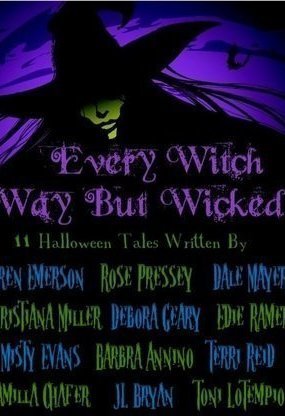
Every Witch Way But Wicked
Book
Take twelve paranormal authors. Toss them together in one anthology. Add a dash of romance, a pinch...
Witches
Darren (1599 KP) rated The Furnace (2019) in Movies
Oct 14, 2019
Characters – Mary starts this film married and about to go on a honeymoon the pair had been dreaming off, this goes in an instant, leaving her needing an oxygen tank to get through the day, with any hopes of running dashed. Angry at the world, she starts to close off, finding any attempts at returning to her passion ending in hospital trips, until she meets Coffin, here she learns about faith and new technology to overcome her odds to compete in the race that was her honeymoon plan, one that is a test for even the toughest runners in the world. Coffin is a gravedigger in America, even though he is trained as a doctor back in Africa, he offers to help Mary get back to her former self, teaching her to pace herself, preparing her for the impossible sounding race. He must watch from the side lines, with hope that she will make it through each stage of the race. Raphaella is a fellow runner that Mary meets along the way, one to help support her over the course of the journey.
Performances – Jamie Bernadette steps away from the action horror roles we have seen her in recently for a much more serious role, one that does play into her strengths, she deals with the athletic demand of the performance with ease, while bringing the emotional impact of her character’s journey through the film. Luthuli Dlamini does a wonderful job in his role too bringing the calmness to help make Mary strong through the film.
Story – The story here follows one woman that loses everything she had a dreamt off until she finds her faith and pushes herself to get back on the track and complete the race she was meant to do with her husband. This is a story that shows the inspiration of wanting to overcome tragedy and finding a way to achieve this in a world you wouldn’t normal consider. We do get a normal montage of training, while a large part of the story follows the race being competed in. we do get to see just how much needed to be overcome, though it could have given us more of a time frame and just what the injury Mary had, like how likely it is to overcome, or would it be something she was meant to be living with for the rest of her life.
Settings – The film uses the settings to show us just how her life changes in America, while it does get the beauty shots of the African wild reserve seeing the different animals around area.
Scene of the Movie – The race final leg.
That Moment That Annoyed Me – Not getting a full look at the time frame.
Final Thoughts – This is an inspiring story of overcoming tragedy to get back to the former strength, with powerful performances throughout.
Overall: Inspiring Throughout.
Performances – Jamie Bernadette steps away from the action horror roles we have seen her in recently for a much more serious role, one that does play into her strengths, she deals with the athletic demand of the performance with ease, while bringing the emotional impact of her character’s journey through the film. Luthuli Dlamini does a wonderful job in his role too bringing the calmness to help make Mary strong through the film.
Story – The story here follows one woman that loses everything she had a dreamt off until she finds her faith and pushes herself to get back on the track and complete the race she was meant to do with her husband. This is a story that shows the inspiration of wanting to overcome tragedy and finding a way to achieve this in a world you wouldn’t normal consider. We do get a normal montage of training, while a large part of the story follows the race being competed in. we do get to see just how much needed to be overcome, though it could have given us more of a time frame and just what the injury Mary had, like how likely it is to overcome, or would it be something she was meant to be living with for the rest of her life.
Settings – The film uses the settings to show us just how her life changes in America, while it does get the beauty shots of the African wild reserve seeing the different animals around area.
Scene of the Movie – The race final leg.
That Moment That Annoyed Me – Not getting a full look at the time frame.
Final Thoughts – This is an inspiring story of overcoming tragedy to get back to the former strength, with powerful performances throughout.
Overall: Inspiring Throughout.
Movie Metropolis (309 KP) rated Beauty and the Beast (2017) in Movies
Jun 10, 2019 (Updated Jun 10, 2019)
A tale as old as time
Whichever big wig down at Disney decided it would be a good idea to remake all of their animated classics using live-action is surely due a massive promotion. The studio’s reputation is soaring after the acquisition of Marvel and Lucasfilm and this new way of thinking is paying off at the box office.
Last year’s The Jungle Book earned just shy of $1billion worldwide, their Marvel Cinematic Universe has taken upwards of $5billion and don’t get me started on Star Wars. Continuing the studio’s trend of remaking their animated features is Beauty & the Beast, but does this modern day reimagining of a fairly modern classic conjure up memories of 1991?
Belle (Emma Watson), a bright, beautiful and independent young woman, is taken prisoner by a beast (Dan Stevens) in its castle. Despite her fears, she befriends the castle’s enchanted staff including Cogsworth (Ian McKellen) and Lumiere (Ewan McGregor) and tries her best to learn to look beyond the beast’s hideous exterior, allowing her to recognise the kind heart and soul of the true prince that hides on the inside.
There were gasps of shock when Harry Potter actress Emma Watson was cast as Belle, but thankfully after sitting through 129 minutes of her singing and dancing, there is no reason to be concerned. She slots into the role of a Disney princess with ease, though it’s still incredibly difficult to see her as anything but the talented witch from Hogwarts.
The rest of the cast is very good with the exception of Ewan McGregor’s dreadful French accent. It can be forgiven however because the sense of nostalgia that the castle’s staff bring to the table is wonderful. Ian McKellen, Emma Thompson, Stanley Tucci all lend their voices with Thompson taking over from Angela Lansbury beautifully. Her rendition of the iconic titular song brings goose bumps.
Elsewhere, Luke Evans is an excellent choice to play villainous Gaston. It’s hard to imagine anyone better to play the gluttonous womaniser and Josh Gad is sublime as his sidekick.
Dan Stevens’ transformation into Beast is one that’s a little bit harder to judge. There is no doubt he is up to the task of playing this iconic character, but the limits of current motion capture technology can sometimes render him a little playdoh like. There are fleeting moments when the illusion is shattered because of something as trivial as the way his fur moves.
Nevertheless, the rest of the special effects are absolutely top notch. The costumes and the set design all integrate perfectly with the naturally heavy use of CGI to create a film that harks back to its predecessor in every way.
Whilst not as dark as last year’s The Jungle Book, Beauty & the Beast is still a deeply disturbing film at times, made all the more so by its recreation in live-action. Young children may find it a troubling watch, a reason why the BBFC has awarded it a PG rating rather than the typical U that most other Disney features receive.
Overall, Beauty & the Beast is a faithful recreation of its 1991 predecessor and that comes with its own set of challenges. The animated version is widely regarded as one of Disney’s best films, so director Bill Condon (Dreamgirls, Twilight) had massive shoes to fill. For the most part, he’s succeeded in crafting a visually stunning and poignant movie that’s only drawbacks are its length and poor motion capture. Much better than Cinderella, but not quite as ground-breaking as The Jungle Book, it’s a lovely watch for all the family.
https://moviemetropolis.net/2017/03/17/a-tale-as-old-as-time-beauty-the-beast-review/
Last year’s The Jungle Book earned just shy of $1billion worldwide, their Marvel Cinematic Universe has taken upwards of $5billion and don’t get me started on Star Wars. Continuing the studio’s trend of remaking their animated features is Beauty & the Beast, but does this modern day reimagining of a fairly modern classic conjure up memories of 1991?
Belle (Emma Watson), a bright, beautiful and independent young woman, is taken prisoner by a beast (Dan Stevens) in its castle. Despite her fears, she befriends the castle’s enchanted staff including Cogsworth (Ian McKellen) and Lumiere (Ewan McGregor) and tries her best to learn to look beyond the beast’s hideous exterior, allowing her to recognise the kind heart and soul of the true prince that hides on the inside.
There were gasps of shock when Harry Potter actress Emma Watson was cast as Belle, but thankfully after sitting through 129 minutes of her singing and dancing, there is no reason to be concerned. She slots into the role of a Disney princess with ease, though it’s still incredibly difficult to see her as anything but the talented witch from Hogwarts.
The rest of the cast is very good with the exception of Ewan McGregor’s dreadful French accent. It can be forgiven however because the sense of nostalgia that the castle’s staff bring to the table is wonderful. Ian McKellen, Emma Thompson, Stanley Tucci all lend their voices with Thompson taking over from Angela Lansbury beautifully. Her rendition of the iconic titular song brings goose bumps.
Elsewhere, Luke Evans is an excellent choice to play villainous Gaston. It’s hard to imagine anyone better to play the gluttonous womaniser and Josh Gad is sublime as his sidekick.
Dan Stevens’ transformation into Beast is one that’s a little bit harder to judge. There is no doubt he is up to the task of playing this iconic character, but the limits of current motion capture technology can sometimes render him a little playdoh like. There are fleeting moments when the illusion is shattered because of something as trivial as the way his fur moves.
Nevertheless, the rest of the special effects are absolutely top notch. The costumes and the set design all integrate perfectly with the naturally heavy use of CGI to create a film that harks back to its predecessor in every way.
Whilst not as dark as last year’s The Jungle Book, Beauty & the Beast is still a deeply disturbing film at times, made all the more so by its recreation in live-action. Young children may find it a troubling watch, a reason why the BBFC has awarded it a PG rating rather than the typical U that most other Disney features receive.
Overall, Beauty & the Beast is a faithful recreation of its 1991 predecessor and that comes with its own set of challenges. The animated version is widely regarded as one of Disney’s best films, so director Bill Condon (Dreamgirls, Twilight) had massive shoes to fill. For the most part, he’s succeeded in crafting a visually stunning and poignant movie that’s only drawbacks are its length and poor motion capture. Much better than Cinderella, but not quite as ground-breaking as The Jungle Book, it’s a lovely watch for all the family.
https://moviemetropolis.net/2017/03/17/a-tale-as-old-as-time-beauty-the-beast-review/
Billie Wichkan (118 KP) rated Broken Wings in Books
May 22, 2019
Evening, I made my one hundred and seventy-eighth scratch on the cave wall.
Despite her humble rural beginnings, Butterfly regards herself as a sophisticated young woman. So, when offered a lucrative job in the city, she jumps at the chance.
But instead of being given work, she is trafficked and sold to Bright Black, a desperate man from a poor mountain village.
Trapped in Bright's cave home with her new "husband", she plans her escape not so easily done in this isolated and remote village where she is watched day and night.
Will her tenacity and free spirit survive, or will she be broken?
Chinas one child policy has resulted in a gender imbalance as more male children than female children were born; now young men are having difficulty finding wives. Apparently bride kidnapping has recently resurfaced in some parts of China. In many cases, women are kidnapped and sold to men in poorer regions of the country. This is what happens to Butterfly. In an afterword, the author mentions that her story is based on what happened to the daughter of a neighbour in his home village.
This was very interesting to read for me but did take some patience for me to get into though.
There's a great bunch of characters and a very strong young lady.
It is also heartbreaking to know that this story was inspired by a true account.
Recommend reading.
My thanks to ACA Publishing for an ARC via NetGalley. This is my own honest voluntary review.
Despite her humble rural beginnings, Butterfly regards herself as a sophisticated young woman. So, when offered a lucrative job in the city, she jumps at the chance.
But instead of being given work, she is trafficked and sold to Bright Black, a desperate man from a poor mountain village.
Trapped in Bright's cave home with her new "husband", she plans her escape not so easily done in this isolated and remote village where she is watched day and night.
Will her tenacity and free spirit survive, or will she be broken?
Chinas one child policy has resulted in a gender imbalance as more male children than female children were born; now young men are having difficulty finding wives. Apparently bride kidnapping has recently resurfaced in some parts of China. In many cases, women are kidnapped and sold to men in poorer regions of the country. This is what happens to Butterfly. In an afterword, the author mentions that her story is based on what happened to the daughter of a neighbour in his home village.
This was very interesting to read for me but did take some patience for me to get into though.
There's a great bunch of characters and a very strong young lady.
It is also heartbreaking to know that this story was inspired by a true account.
Recommend reading.
My thanks to ACA Publishing for an ARC via NetGalley. This is my own honest voluntary review.
Acanthea Grimscythe (300 KP) rated The Bone Witch (The Bone Witch, #1) in Books
May 16, 2018
The Bone Witch is set in a fantasy world comprised of eight kingdoms, each with their own distinct customs. Some of these kingdoms echo the cultures of the Middle East and others, namely Kion and the asha-ka, the home of the female magic users, are heavily influenced by Asian traditions. In fact, reading The Bone Witch was, in a way, a lot like reading Memoirs of a Geisha, only instead of preparing a girl's virginity for auction, the Houses of the asha-ka sell a much cleaner form of entertainment: performances and magic, to be specific. When they are discovered, the soon-to-be asha are taken away and trained so that they can properly use their abilities. Because of their talents, they are often respected - except for the bone witches, or Dark asha. These are the necromancers of the world that Chupeco has created.
Chupeco has spared nothing in the creation of her world, from elaborate cities and countries, to detailed garb, to the daeva, creatures of supposedly evil origin. She's even created a unique tradition among the denizens of her world, where they quite literally wear their hearts - only it is on their necks, rather than their sleeves. An individual's heartsglass reflects who and what they are, allowing potential asha and Deathseekers to begin their training early in their lives.
It is because of the daeva that bone witches are an unwanted necessity among the eight kingdoms, and it is by accident that we are introduced to Tea, a young girl who, after learning of her older brother's death, becomes so distraught that she accidentally raises him from his grave. From there, we follow Tea's journey to becoming a full-fledged asha, and while the story does have a bit of a lull in its center where nothing happens (I would have put it down if it weren't for the fact that I tend to do my best to finish advance copies), the ending picks up and twists in ways that are surprising. In fact, I found myself completely surprised by not one, but two of the revelations the reader encounters near the end of the book.
The Bone Witch switches between two perspectives in each chapter, with the first portion, the "flashback" for lack of a better word, told from Tea's perspective. At the end of each chapter, in italics, is a few short passages told from the perspective of a bard that has been exiled from his homeland. The italics take place in present day and hint at something much, much larger arriving in the near future while introducing the reader to the young woman that Tea has become.
There does seem to be lack of depth to many of the characters. Tea's brother, Fox, after he is risen from the grave, appears to lack personality. His only drive seems to be protecting his sister, though it is alluded to that in the future, we may see a lot of development to his character (or so I hope). Aside from those asha that belong to House Valerian, only a few of the characters seem to have truly dynamic characteristics.
In regards to that "lull" in the book, I must admit that it is nearly impossible to get through - especially if the reader has a short attention span. Too much time is spent on details that appear to be largely unimportant to the story - such as the fine tuning of Tea's training. Also, while the descriptions of the hua, the garb worn by the asha, are beautifully written, they are a bit too detailed. I could do with a bit less exposition in that regard.
Needless to say, it is going to be a long wait for the next book, and I can't wait for it - those last few chapters really made a difference. Thanks to NetGalley, the publisher, and Rin Chupeco for providing me with an advance copy of the book in exchange for an unbiased and honest review.
Chupeco has spared nothing in the creation of her world, from elaborate cities and countries, to detailed garb, to the daeva, creatures of supposedly evil origin. She's even created a unique tradition among the denizens of her world, where they quite literally wear their hearts - only it is on their necks, rather than their sleeves. An individual's heartsglass reflects who and what they are, allowing potential asha and Deathseekers to begin their training early in their lives.
It is because of the daeva that bone witches are an unwanted necessity among the eight kingdoms, and it is by accident that we are introduced to Tea, a young girl who, after learning of her older brother's death, becomes so distraught that she accidentally raises him from his grave. From there, we follow Tea's journey to becoming a full-fledged asha, and while the story does have a bit of a lull in its center where nothing happens (I would have put it down if it weren't for the fact that I tend to do my best to finish advance copies), the ending picks up and twists in ways that are surprising. In fact, I found myself completely surprised by not one, but two of the revelations the reader encounters near the end of the book.
The Bone Witch switches between two perspectives in each chapter, with the first portion, the "flashback" for lack of a better word, told from Tea's perspective. At the end of each chapter, in italics, is a few short passages told from the perspective of a bard that has been exiled from his homeland. The italics take place in present day and hint at something much, much larger arriving in the near future while introducing the reader to the young woman that Tea has become.
There does seem to be lack of depth to many of the characters. Tea's brother, Fox, after he is risen from the grave, appears to lack personality. His only drive seems to be protecting his sister, though it is alluded to that in the future, we may see a lot of development to his character (or so I hope). Aside from those asha that belong to House Valerian, only a few of the characters seem to have truly dynamic characteristics.
In regards to that "lull" in the book, I must admit that it is nearly impossible to get through - especially if the reader has a short attention span. Too much time is spent on details that appear to be largely unimportant to the story - such as the fine tuning of Tea's training. Also, while the descriptions of the hua, the garb worn by the asha, are beautifully written, they are a bit too detailed. I could do with a bit less exposition in that regard.
Needless to say, it is going to be a long wait for the next book, and I can't wait for it - those last few chapters really made a difference. Thanks to NetGalley, the publisher, and Rin Chupeco for providing me with an advance copy of the book in exchange for an unbiased and honest review.
Acanthea Grimscythe (300 KP) rated Little Darlings in Books
Feb 3, 2019
I looked at Melanie Golding’s debut novel, Little Darlings, several times on NetGalley before I decided to click the read now button, and after spending the whole day reading it, I’m certainly glad I did. I’m not a mother myself, but Golding’s prose brings to life the very real concerns that any parent faces: the fear of losing their children. In this beautifully written book, readers are introduced to a deliciously dark fairytale, alongside the ultimate horror a parent can encounter.
Lauren Tranter is a new mother to beautiful twin boys. Cautious and brimming with worries common to becoming a parent, she finds herself quickly in a predicament: a woman has shown up at the maternity ward, demanding Lauren’s children in exchange for her own. When Lauren refuses, things quickly become murky and, when her children go missing at the park, her life is turned upside down.
I have a bit of a tumultuous relationship with a few of the characters in this book, and it’s a bit difficult to really nail down how I feel about them. For the most part, I absolutely adore Lauren–perhaps because I feel she’s portrayed exceptionally. Her husband, on the other hand, I can’t stand. Arrogant and self-centered, all Patrick seems to care about is himself. The detective, Jo Harper, falls squarely in between these two. Coming off as unlikable early on, she quickly finds her way into the reader’s heart with her go get ’em attitude. In part, it’s because of her noble desire to get to the bottom of things: to determine whether or not Lauren is mad, or if there might be some truth to what the new mother is saying.
Golding’s command of language lends a dark atmosphere to her novel. With excerpts from tales on changelings spaced throughout the book, she creates a deeply disturbing reality, where as a reader I found myself questioning everything. She simultaneously makes both sides of the plot’s story, that is Lauren’s side and the side conducting the investigation into the attempted abduction of her children, equally believable. I’m still asking questions, even after finishing the book. Oh, and the things uncovered toward the end of the book adds a delicious twist on top of Lauren’s plight.
Little Darlings is a wonderful read, and I read the majority of it in one sitting. It starts out a bit slowly, but once things begin picking up, Golding’s style drives the story forward at break-neck speed. After reading this, I was thrilled to discover it’s already been optioned for a film and I eagerly await its release. This book is definitely a must read for fans of psychological thrillers.
I’d like to thank NetGalley and Crooked Lane Books for providing me with a free copy of this book in exchange for an honest review.
Lauren Tranter is a new mother to beautiful twin boys. Cautious and brimming with worries common to becoming a parent, she finds herself quickly in a predicament: a woman has shown up at the maternity ward, demanding Lauren’s children in exchange for her own. When Lauren refuses, things quickly become murky and, when her children go missing at the park, her life is turned upside down.
I have a bit of a tumultuous relationship with a few of the characters in this book, and it’s a bit difficult to really nail down how I feel about them. For the most part, I absolutely adore Lauren–perhaps because I feel she’s portrayed exceptionally. Her husband, on the other hand, I can’t stand. Arrogant and self-centered, all Patrick seems to care about is himself. The detective, Jo Harper, falls squarely in between these two. Coming off as unlikable early on, she quickly finds her way into the reader’s heart with her go get ’em attitude. In part, it’s because of her noble desire to get to the bottom of things: to determine whether or not Lauren is mad, or if there might be some truth to what the new mother is saying.
Golding’s command of language lends a dark atmosphere to her novel. With excerpts from tales on changelings spaced throughout the book, she creates a deeply disturbing reality, where as a reader I found myself questioning everything. She simultaneously makes both sides of the plot’s story, that is Lauren’s side and the side conducting the investigation into the attempted abduction of her children, equally believable. I’m still asking questions, even after finishing the book. Oh, and the things uncovered toward the end of the book adds a delicious twist on top of Lauren’s plight.
Little Darlings is a wonderful read, and I read the majority of it in one sitting. It starts out a bit slowly, but once things begin picking up, Golding’s style drives the story forward at break-neck speed. After reading this, I was thrilled to discover it’s already been optioned for a film and I eagerly await its release. This book is definitely a must read for fans of psychological thrillers.
I’d like to thank NetGalley and Crooked Lane Books for providing me with a free copy of this book in exchange for an honest review.
Sensitivemuse (246 KP) rated Silence of the Grave in Books
Sep 1, 2018
Bleak atmosphere, excellent writing and story
Contains spoilers, click to show
***Spoilers you have been warned***
I loved Jar City because of the dark bleak mood setting that’s described in Erlandur’s world. This one proves to be just the same. Coupled with a well written mystery that goes back into the past, this one lived up to the previous.
The book goes back and forth in time. It features on the past of a woman and her family and the horrendous abuse she endures. It leads up to the mystery surrounding the body found in the present. It’s good background storytelling and put in the missing pieces gradually as you progress in the book. Then as it goes forward to present day, you have Erlandur and his crew attempting to figure out the mystery but it also focuses on Erlandur’s past, and his attempt at patching things up with Eva Lind as she’s in a coma at the hospital.
Don’t expect twists and turns or any special revelations in this novel. It’s a subtle mystery but so well written that it’s a quick read and you’re so immersed into the book that the pages do fly by. It’s the writing style that makes it so good. The mood and setting is again, dark as usual. It’s more bleak than the previous one due to the subject matter and with what Erlandur experiences.
Admittedly, this isn’t for everyone. The physical, mental, emotional abuse featured in this book is hard to read. You sympathize with the mother and her children and Grimur is just one awful piece of garbage. Erlandur’s ghosts from the past is also revealed in this book and he’s got quite a lot of baggage on his shoulders (not including his ex wife and Eva Lind) but it gives his character more substance and he’s not just a presence in the novel. You also learn more about his colleagues (although I’d like to learn more about Elinborg) as they have their lives as well. I like this aspect of the novel as it shows what they do out of duty and gives them a more realistic human feel to the book.
Not much of a mystery but makes for really good reading, not only do the characters flesh out more but the writing is so well done. Recommended and I’ll be moving onto the next book after this one.
I loved Jar City because of the dark bleak mood setting that’s described in Erlandur’s world. This one proves to be just the same. Coupled with a well written mystery that goes back into the past, this one lived up to the previous.
The book goes back and forth in time. It features on the past of a woman and her family and the horrendous abuse she endures. It leads up to the mystery surrounding the body found in the present. It’s good background storytelling and put in the missing pieces gradually as you progress in the book. Then as it goes forward to present day, you have Erlandur and his crew attempting to figure out the mystery but it also focuses on Erlandur’s past, and his attempt at patching things up with Eva Lind as she’s in a coma at the hospital.
Don’t expect twists and turns or any special revelations in this novel. It’s a subtle mystery but so well written that it’s a quick read and you’re so immersed into the book that the pages do fly by. It’s the writing style that makes it so good. The mood and setting is again, dark as usual. It’s more bleak than the previous one due to the subject matter and with what Erlandur experiences.
Admittedly, this isn’t for everyone. The physical, mental, emotional abuse featured in this book is hard to read. You sympathize with the mother and her children and Grimur is just one awful piece of garbage. Erlandur’s ghosts from the past is also revealed in this book and he’s got quite a lot of baggage on his shoulders (not including his ex wife and Eva Lind) but it gives his character more substance and he’s not just a presence in the novel. You also learn more about his colleagues (although I’d like to learn more about Elinborg) as they have their lives as well. I like this aspect of the novel as it shows what they do out of duty and gives them a more realistic human feel to the book.
Not much of a mystery but makes for really good reading, not only do the characters flesh out more but the writing is so well done. Recommended and I’ll be moving onto the next book after this one.
BankofMarquis (1832 KP) rated Bird Box (2018) in Movies
Feb 1, 2019
Almost a good movie
One of my favorite films of 2018 is A QUIET PLACE where aliens with extreme hearing can get you if you make a noise. It is a quite interesting and well made film (with a bravura performance by Emily Blunt), so when I heard there was a variant of this theme (this time you can't use your eyes), I decided to check it out and to see if Sandra Bullock could pull off the same sort of bravura performance as Blunt.
And, that's too bad, for by comparison the Netflix flick BIRD BOX is no A QUIET PLACE, but if I don't try to compare it to A QUIET PLACE, BIRD BOX is a very entertaining film, indeed.
The story follows Bullock as Malorie a pregnant single woman who holds no "maternal instinct" towards her unborn child. Malorie is devoid of emotion and compassion and is dreading the day that her child will be born. Enter into this an "end of world event" where unseen aliens show up and, if you look at them, you go insane and try to commit suicide. Amidst this chaos, Malorie and a ragtag assortment of survivors find shelter in the house of Douglas (John Malkovich). Can this disparate group of strangers find a way to survive in this insane new world?
Well...the fun in this kind of movie is in the characters trapped together and the "10 Little Indians" style of demise as the house guests are picked off one by one by the aliens (or each other). It is the drama of these trapped individuals, and the surprise and the ingenuity of how they are killed off that makes or breaks these types of films.
And in this way, this film succeeds very well for besides Bullock and Malkovich, the housemates are filled with (for the most part) a strong grouping of actors led, most notably, by Trevante Rhodes (MOONLIGHT) and Jacki Weaver (ANIMAL KINGDOM). They are strong presences in this household and are interesting to watch. Good ol' B.D. Wong (JURASSIC PARK among many, many credits) brings his usual, solid game and Lil Rey Howery (GET OUT) brings much needed energy and humor to the proceedings. Add to this the usual, creepy Tom Hollander (IN THE LOOP) as a mysterious houseguest who is...creepy...and there is enough going on to keep my interest.
Add to this the always intriguing work of Malkovich as the paranoid, "me first" homeowner and Bullock underplaying her emotions as a counterbalance to Malkovich overplaying his emotions and the scenes in the house were interesting and (at times) gripping.
The problem I have with this film is that it inter cuts these scenes with scenes of Bullock (and a few other survivors from the house) "5 years later" - so, you already know who makes it and who doesn't - which takes away the tension of the house scenes. It also has an ending that, quite frankly, I saw coming a mile off and so it was not a satisfying conclusion to the proceedings for the ending was uneventful and unsurprising. A poor way to end this sort of film.
Don't get me wrong, the scenes in the house of the initial group of survivors is well worth viewing this film, I just wish Director Susanne Bier (THE NIGHT MANAGER) didn't dilute these scenes by bringing us forward in time too soon. I wonder how much better this film could have been had we just watched the events of the film (including all of the "5 years later scenes") in chronological order, I gotta think it would have been a better film.
This is, by every definition of the term, a "B" film, perfect for a snow, rain or cold-bound afternoon at home.
Letter Grade: B
7 (out of 10) stars and you can take that to the Bank(ofMarquis)
And, that's too bad, for by comparison the Netflix flick BIRD BOX is no A QUIET PLACE, but if I don't try to compare it to A QUIET PLACE, BIRD BOX is a very entertaining film, indeed.
The story follows Bullock as Malorie a pregnant single woman who holds no "maternal instinct" towards her unborn child. Malorie is devoid of emotion and compassion and is dreading the day that her child will be born. Enter into this an "end of world event" where unseen aliens show up and, if you look at them, you go insane and try to commit suicide. Amidst this chaos, Malorie and a ragtag assortment of survivors find shelter in the house of Douglas (John Malkovich). Can this disparate group of strangers find a way to survive in this insane new world?
Well...the fun in this kind of movie is in the characters trapped together and the "10 Little Indians" style of demise as the house guests are picked off one by one by the aliens (or each other). It is the drama of these trapped individuals, and the surprise and the ingenuity of how they are killed off that makes or breaks these types of films.
And in this way, this film succeeds very well for besides Bullock and Malkovich, the housemates are filled with (for the most part) a strong grouping of actors led, most notably, by Trevante Rhodes (MOONLIGHT) and Jacki Weaver (ANIMAL KINGDOM). They are strong presences in this household and are interesting to watch. Good ol' B.D. Wong (JURASSIC PARK among many, many credits) brings his usual, solid game and Lil Rey Howery (GET OUT) brings much needed energy and humor to the proceedings. Add to this the usual, creepy Tom Hollander (IN THE LOOP) as a mysterious houseguest who is...creepy...and there is enough going on to keep my interest.
Add to this the always intriguing work of Malkovich as the paranoid, "me first" homeowner and Bullock underplaying her emotions as a counterbalance to Malkovich overplaying his emotions and the scenes in the house were interesting and (at times) gripping.
The problem I have with this film is that it inter cuts these scenes with scenes of Bullock (and a few other survivors from the house) "5 years later" - so, you already know who makes it and who doesn't - which takes away the tension of the house scenes. It also has an ending that, quite frankly, I saw coming a mile off and so it was not a satisfying conclusion to the proceedings for the ending was uneventful and unsurprising. A poor way to end this sort of film.
Don't get me wrong, the scenes in the house of the initial group of survivors is well worth viewing this film, I just wish Director Susanne Bier (THE NIGHT MANAGER) didn't dilute these scenes by bringing us forward in time too soon. I wonder how much better this film could have been had we just watched the events of the film (including all of the "5 years later scenes") in chronological order, I gotta think it would have been a better film.
This is, by every definition of the term, a "B" film, perfect for a snow, rain or cold-bound afternoon at home.
Letter Grade: B
7 (out of 10) stars and you can take that to the Bank(ofMarquis)
